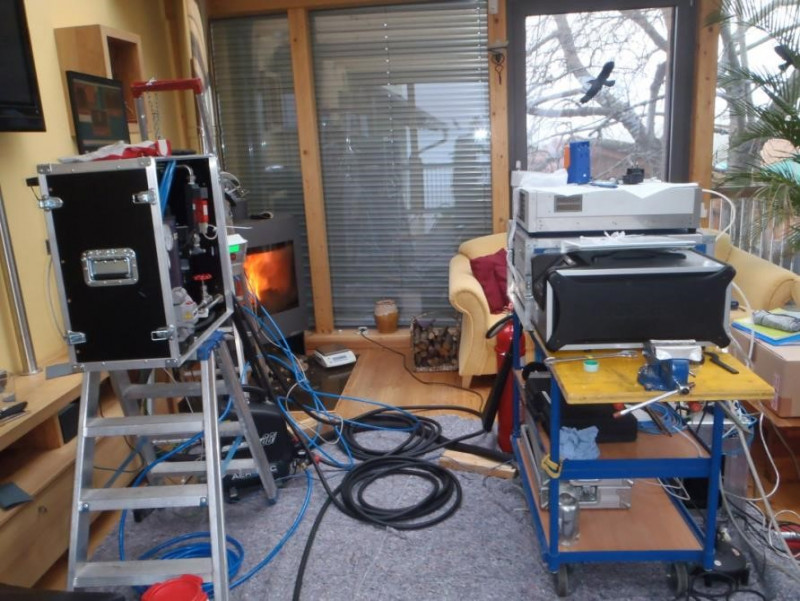COMET-Programme
The strategic objectives of COMET are: developing new expertise by initiating and supporting long-term research co-operations between science and industry in top-level research, and extablishing and securing the technological leadership of companies. By advancing and bundling exting strengths and by integrating international research expertise Austria is to be strengthened as a research location for the long term.
The competence center BEST - Bioenergy and Sustainable Technologies GmbH is funded by BMIMI, BMWET and the federal states Vienna, Lower Austria und Styria within the scope of COMET - Competence Centers for Excellent Technologies. The program COMET is managed by the FFG.
As a link between academic research and industrial technology development, our vision is to develop and demonstrate sustainable and circular biorefinery processes and technologies for producing green gases, green liquid fuels, and green products, all of which will support the transition to a climate-neutral, zero-fossil-carbon economy. Consequently, the resource basis will be extended to include organic residues, wastes, and carbon dioxide. Conversion technologies will be enhanced or redesigned to ensure their efficient and economical operation, and to allow the value cycles based on new feedstocks to be integrated into the system. By using our excellent experimental facilities, ranging from lab to pilot and demonstration scale plants, our goal is to conduct applied research of the highest scientific quality.
We apply advanced digital methods for technology development, and for the basic automation, optimization, and monitoring of the operation of individual technologies and entire plants. With the help of holistic and technology-neutral planning tools, we ensure that biorefineries and energy supply technologies are optimally integrated into a sustainable, renewable energy system.
CLEAN AIR BY BIOMASS
Evaluating real life emissions of biomass heating systems in a styrian model region in Austria.
Biomass heating systems are commonly used in Austria. However, their emissions contribute to ambient air pollution, especially particle matter emissions (PM). Thus, the project Clean Air by biomass was started in order to improve air quality with the application of new biomass technologies and best-practice operation. The project was conducted in the Styrian model region Vorau. Four measures were defined to optimize the use of biomass heating systems and thus reduce emissions. These measures were:
- Change of old technologies with new ones
- Installation of secondary abatement technologies
- Optimizing existing biomass heating systems
- Training of the end user
For evaluating real life emissions, 15 biomass heating systems were measured in the field at the end users houses.
Results of the field measurements revealed that there is a high variability of emission performance in real life. Single biomass boilers were found with a high number of start and stop phases due to low heat demand, which consequently resulted in increased emissions. Tiled stoves showed low emissions compared to room heaters. Field measurements with room heaters revealed end user behavior as biggest influencing factor regarding emission formation.
For four room heating appliances, the end users were trained in the optimized operation of their appliances. Comparison with the operation before the training showed a reduction potential of about 50% on average for gaseous and particulate emissions. Beyond gaseous and particulate emissions in general, the genotoxic polycyclic aromatic hydrocarbon benzo(a)pyrene (BaP) were determined. In the worst case BaP emissions of a batch before the training were 30 times higher than after the training. So, the impact of end user training is even more evident for BaP emissions.
Results were published at different conferences. At the World Sustainable Energy Days in Wels 2019, Rita Sturmlechner won the “Best Young Biomass Researcher Award” for the presentation of the project results in her paper “Real life emissions of domestic wood heating appliances”.
Impact and effects
The results of the project identified the most cost-effective measures to reduce emission impact from biomass combustion technology. Hence, the impact of air pollution on health and the environmental is reduced.
Based on the findings of this project a follow up project was initiated, which aims at awareness raising of end users on the optimized operation by inviting and involving them in a citizen science approach
Partner
- Energieagentur Steiermark, Austria
- Vienna University of Technology
- Karl Schräder Nachf., Germany
- Austroflamm, Austria
- Lohberger, Austria
- Haas&Sohn, Austria
- Rika, Austria
- Österreichischer Kachelofenverband, Austria
Contact

Manuel SCHWABL
manuel.schwabl@best-research.eu
